Arturia is dropping four products in one day: MiniLab 3 keyboard, Augmented GRAND PIANO plug-in, MiniFuse 4 audio interface, and the MiniFreak synthesizer. Here’s the scoop on each.
Of these, I’ve already got the MiniLab3 keyboard and Augmented GRAND PIANO; the other two will have to wait for hands-on impressions.
MiniFreak
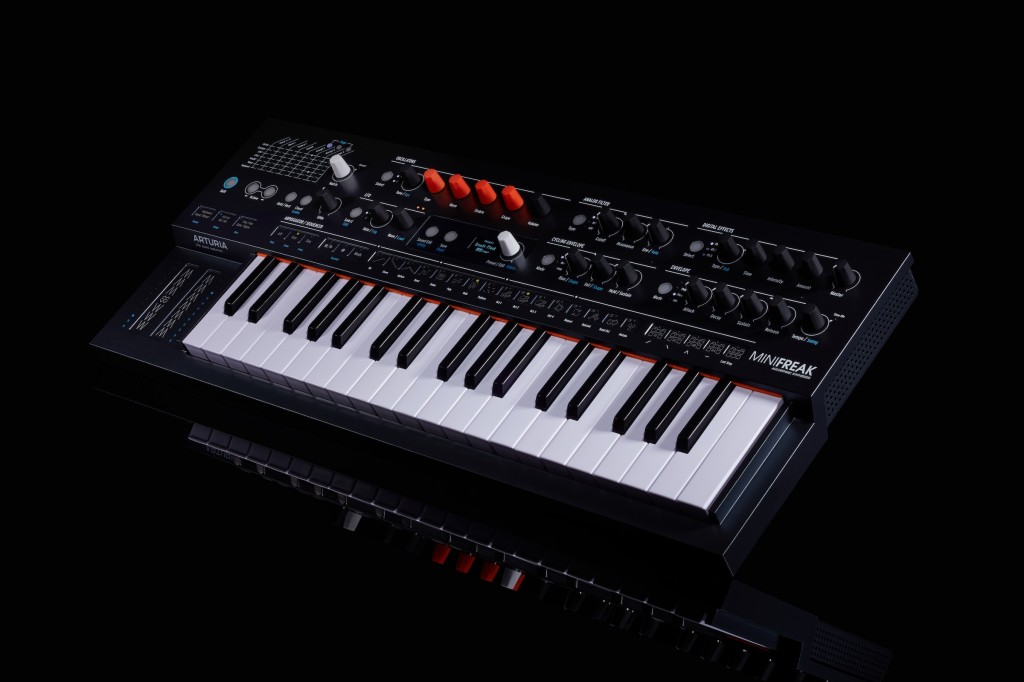
What it is: Portable compact MIDI keyboard
Price and availability: 599€ / $599, available now
The pitch: The MicroFreak, but with more keys, stereo effects, 6-voice polyphony, and lots of extras
Here’s the one you predicted – not even because you saw a leak, but because a lot of fans of the original MiniFreak just willed it into being. And this may well become one of the synths to beat – the MiniFreak was already fiendishly unique in sound, and this takes what you loved about it and fills it out into a more complete package. Gone is that flat paddle keyboard, in are real mini keys. And whereas the MiniFreak sounded bone dry if you didn’t add effects, this one has it built in. And it’s a polysynth.
And everything else is upgraded. Let’s just list:
- 6-voice polyphony / 12-voice paraphony (plus mono and unison modes)
- Analog filters
- Expanded modulation matrix
- Polyphonic ADSR envelopes
- Customizable multi-segment LFO shapes
- FM and ring modulation
- Spice & Dice randomization is back
- 3 digital effects slots with 10 types (including stereo chorus, 3-band EQ, distortion…)
- 37-note keybed with (channel) aftertouch and Seq/Arp
But wait… there’s more. The other big breakthrough is, you can now run MiniFreak as a plug-in, with MiniFreak V. All the digital components are intact, and the software even models the analog filters.
The plug-in isn’t available for sale separately. The idea is, you have the plug-in to use in your DAW when the gear isn’t around. Suits me nicely – then you use the gear playing live.
With KORG doing their SDKs and Arturia now making companion software, plus indie makers like Noise Engineering and Vult doing hardware-software combos and languages, not to mention modules like norns or Befaco Lich running your own custom computer-produced creations, code, and patches… it’s truly a great time to be a software lover using hardware.
This is way up on my list to review. There are nice enough polysynths in this price range, but for me, the MicroFreak was the one that always oozed personality, especially with its internal Noise Engineering bits introduced in v3.
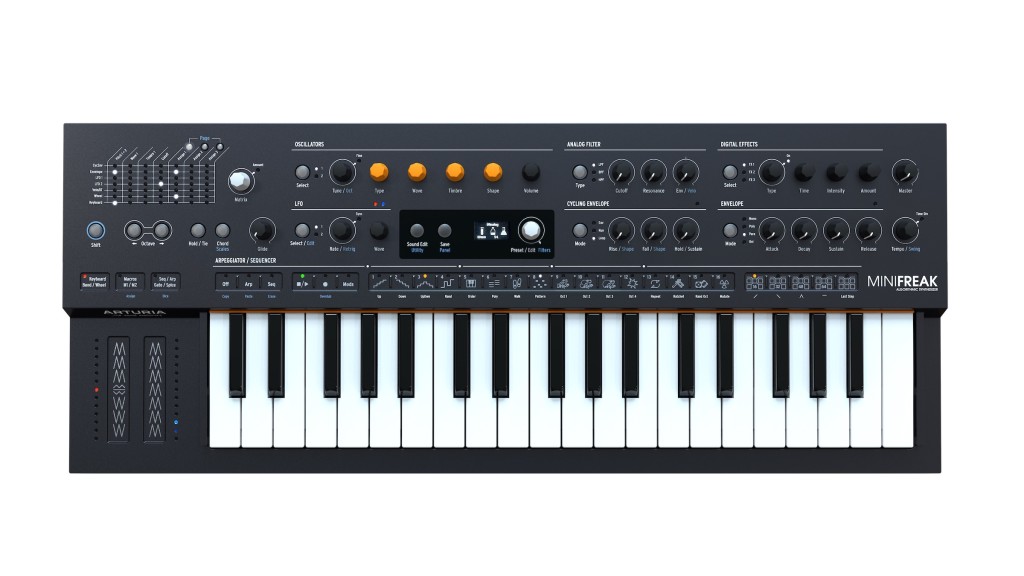

Augmented GRAND PIANO
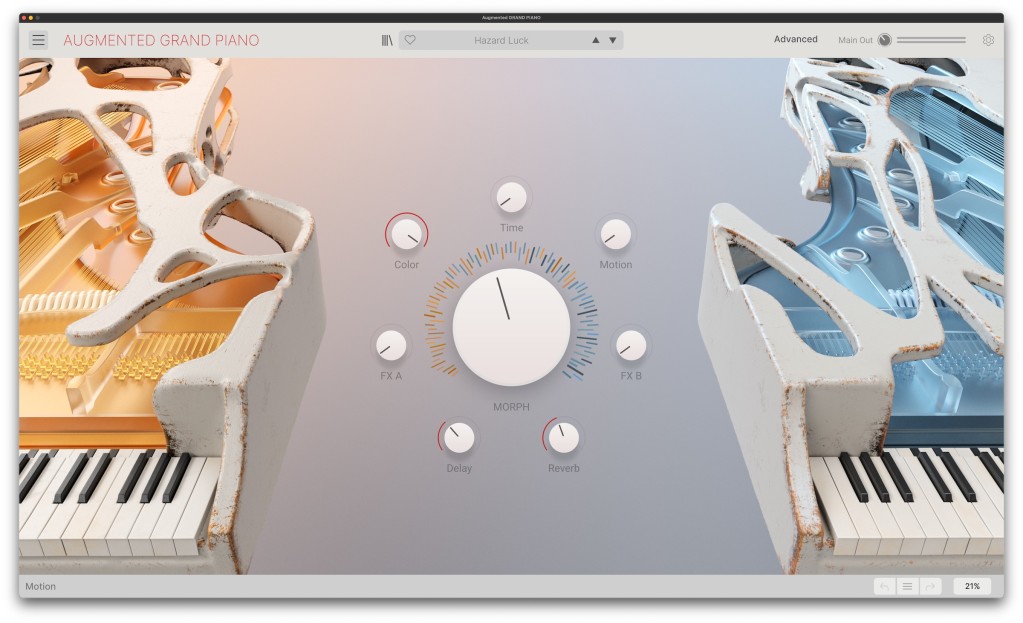
What it is: Synth-sample piano hybrid plug-in with an emphasis on creative textures rather than being another realistic piano
Price and availability: Depends on what you own; intro and bundle pricing available (intro through November 3rd)
The pitch: Arturia is rounding out what they now call the Augmented Trio. (What?! You missed the chance to call it an augmented triad! I’m making my fermata face out of disappointment.) Anyway, think soundtracks rather than software grand.
This might sound like it overlaps with Piano V3, but it’s really more about creative sound design. And Arturia has already been nailing it with this whole series, I think – venturing into territory that was once only in the Kontakt ecosystem.
At this point, you’re either sold on the Augmented series or not. (Let’s call you otherwise Diminished? I’ll stop. I got perfectly carried away.)
But if you are, you get the usual goodies here – morphing, macros, and lots of layers and modulation you can go deep into if you choose. What’s new in this edition is an 80s Steinway grand as the sample source (bringing me back to most of my college years, since we were full of 80s Model D instruments). They’ve added a bunch of techniques, too, like bowing, ping pong balls, and tape processing.
It seems like a winner to me, even if now having joked about it, I do actually want Augmented Bagpipes. I’ll just load in custom samples.
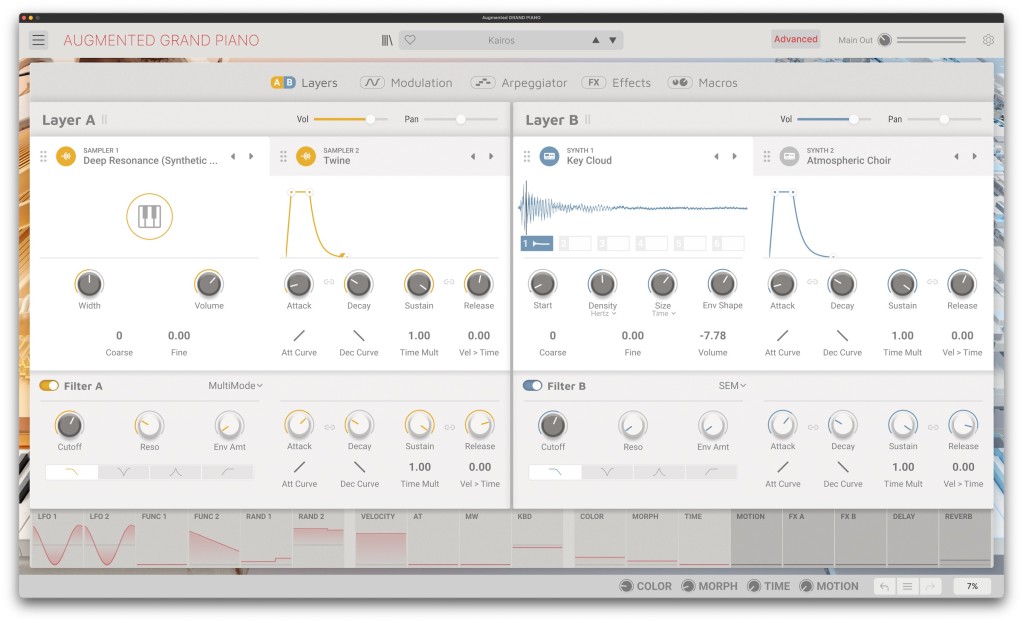
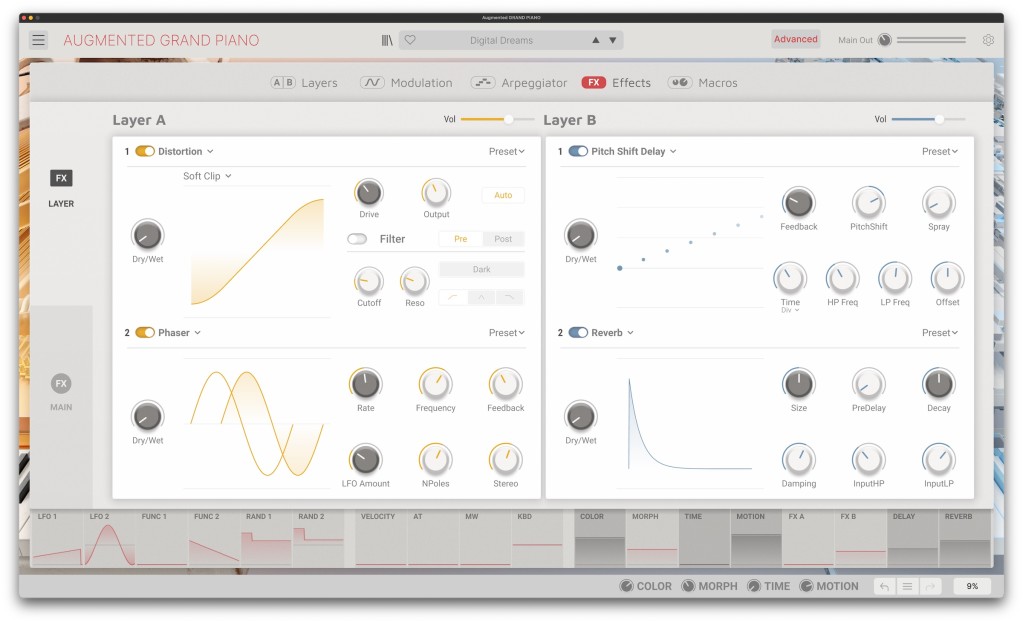
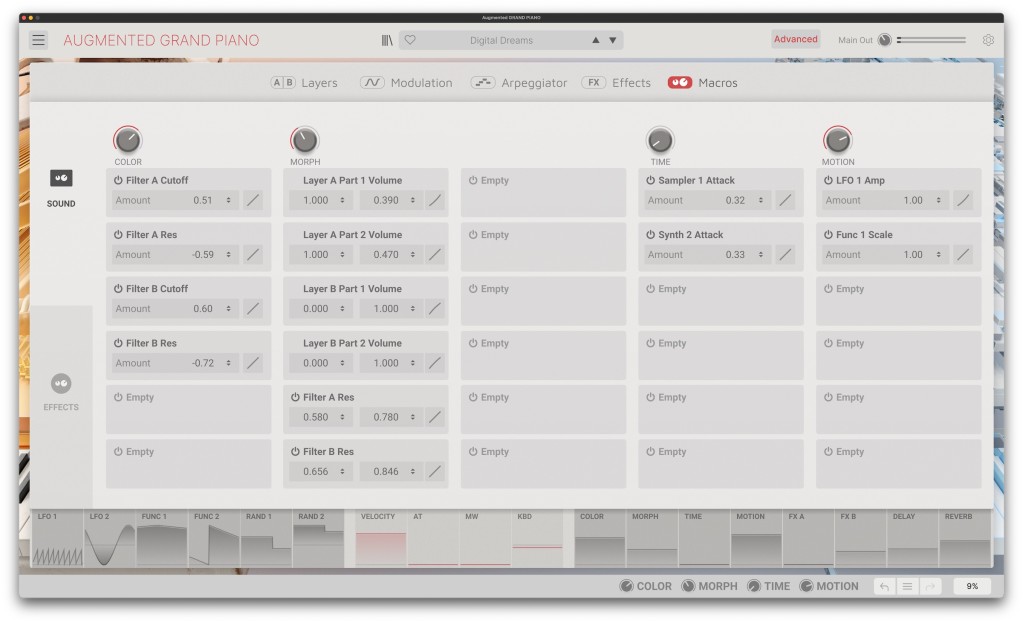
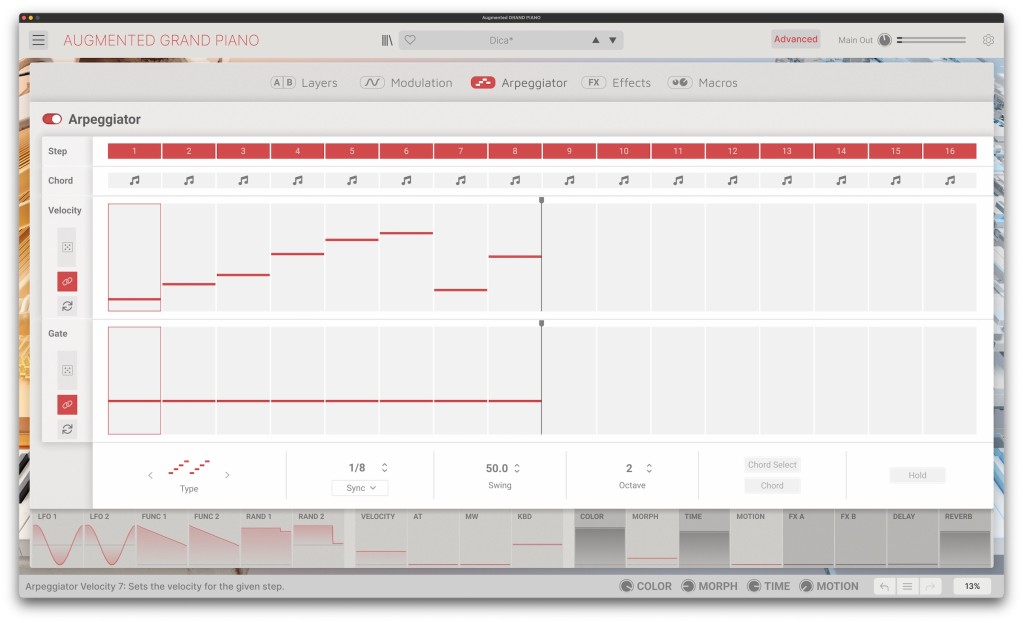
MiniLab 3
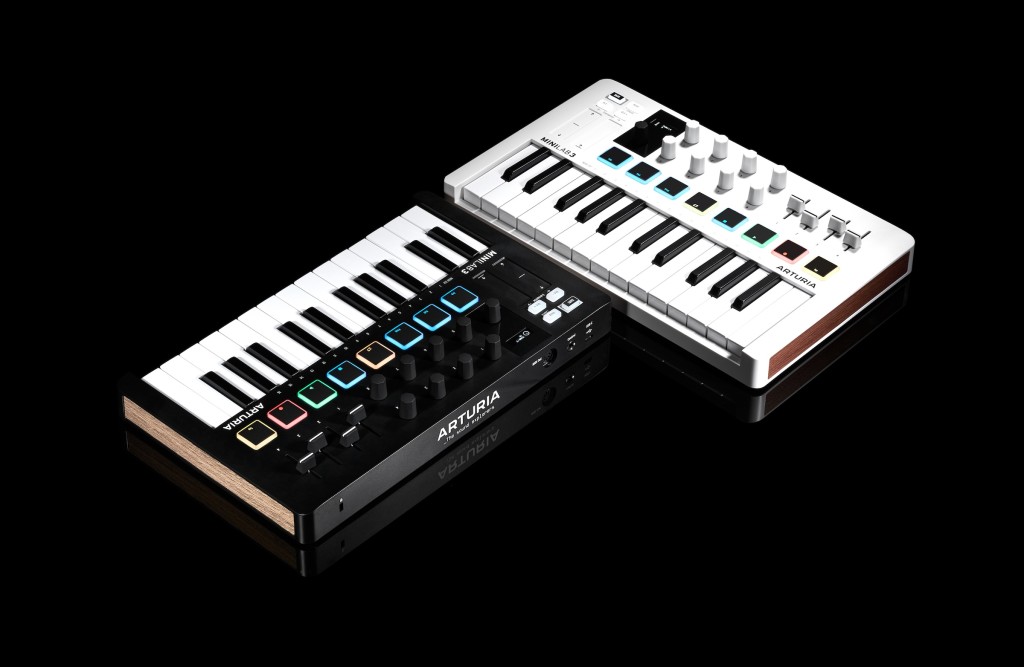
What it is: Portable compact MIDI keyboard
Price and availability: 99€ / $109, available now
The pitch: An overhauled version of Arturia’s mini-keys, plus more sustainable production
I love mini keyboards and the appeal of sticking something in your backpack, but the reliability and quality has been almost universally on the weak side. The MiniLab 3 — at least in initial testing — feels more solid. It seems as thought it might hold up to Arturia’s claim of using better components and more rugged design.
There’s nothing fancy on this keyboard apart from one very cute OLED display that’s handy for seeing controller data. But the revised version covers all the basics: pitch and mod strips, tight-feeling endless encoders (which match perfectly to the display), four faders, and eight pads with continuous pressure.
There’s also now USB-C connectivity for power and MIDI out. And yes, that does mean this works standalone.
You also get tons of scripts for DAW integration (Ableton Live, FL Studio, Logic, Bitwig, and Reason), plus a built-in arpeggiator, hold, and chord modes.
Obviously, don’t toss your existing controller or you totally defeat the purpose, but it’s good to see that Arturia is claiming a minimum 50% recycled plastic, less waste production and 100% recyclable packaging. Various manufacturers have been talking about that lately, and it’s the right thing to do.
The software bundle is actually worth noting – Native instruments’ The Gentleman piano and UVI’s Model D emulation of Minimoog are included along with the usual extras.
Splurging on the KeyStep Pro gives you a keyboard that’s a lot more versatile, with a sequencer and CV and whatnot. But the MiniLab 3 is easy to keep at your desk or tote in your luggage when space is at a premium. And the price is right.
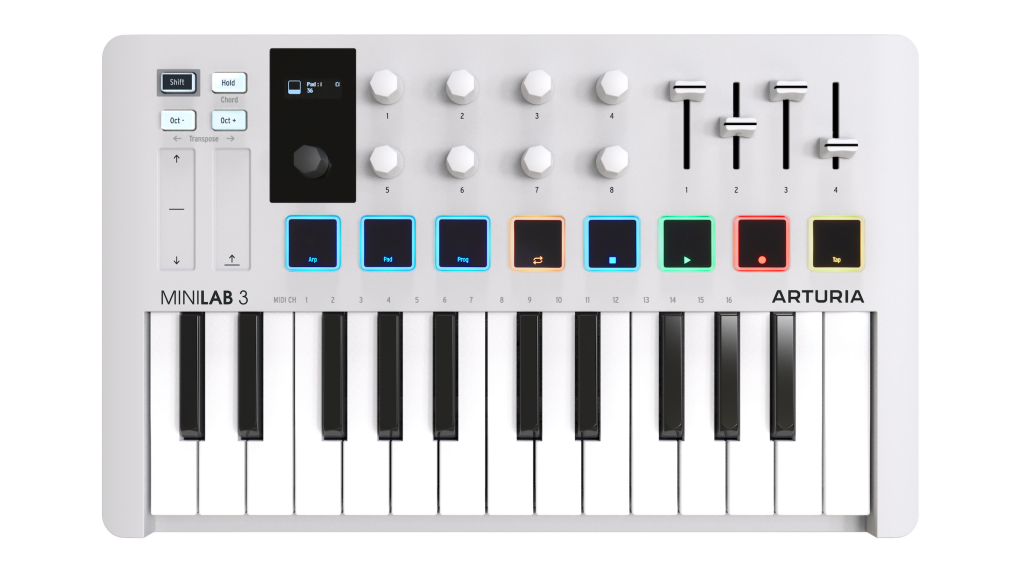
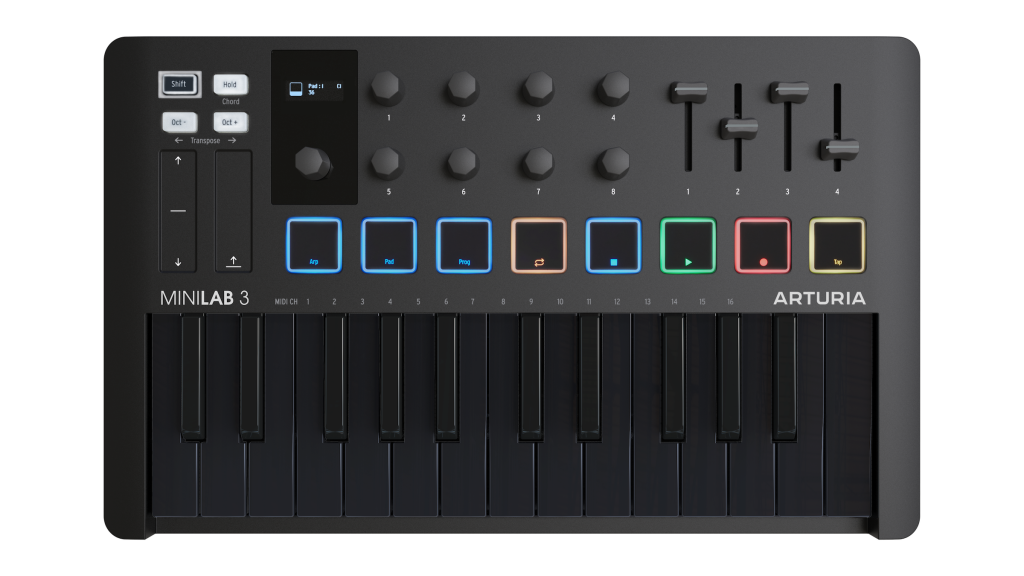

MiniFuse 4
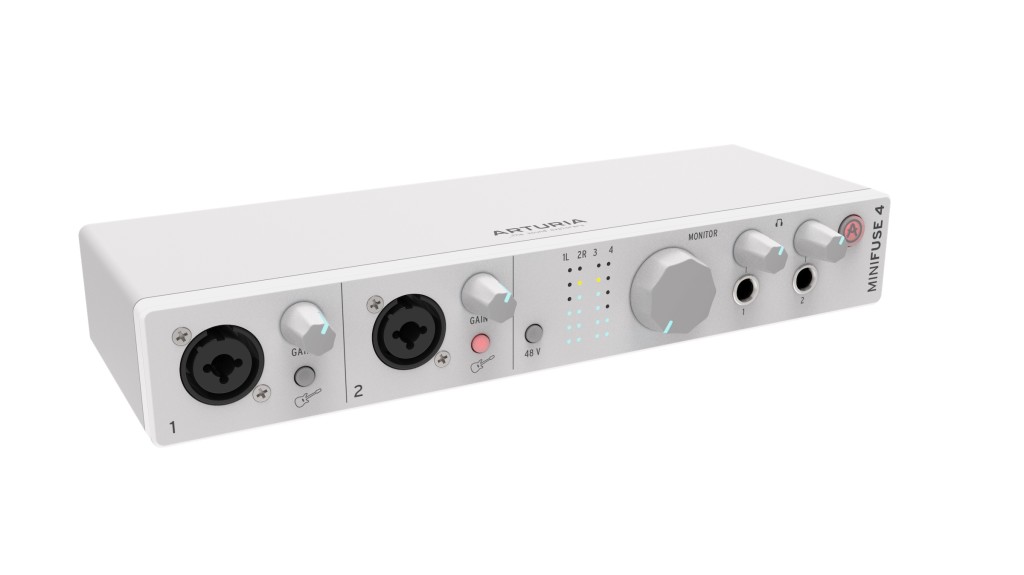
What it is: 4-in/4-out audio interface
Price and availability: 219€ / $219, available now
The pitch: Top-quality audio performance, with features for audio, MIDI, loopback, and connecting modular.
The “available now” part is the news as we were waiting on this one.
We’re really spoiled with the latest generation of audio interfaces. Improvements to component quality can easily make what is theoretically a low-end interface outperform a top-of-range box from just a few years ago. And Arturia has been doing a lot of great work with their MiniFuse line – I talk to a lot of happy users of the later models.
The basic pitch here is the same – you get high-quality audio (110dB dynamic range, input noise of -129dB) plus a bunch of extras:
- 4 inputs
- Internal USB hub
- Dual headphone outs
- DC coupling for modular gear
- Loopback audio (ideal for streaming and podcasting)
- Works without drivers (hello, iPad with adapter, Raspberry Pi, Linux machine, whatever)
Having all those extras sets it apart, and makes strong competition for Universal Audio, MOTU, and Focusrite competitors in the same range But really, like I said, it’s just terrific that we have low-cost devices like this with really higher quality, plus I/O specs that represent what a lot of folks actually do. Previously you wound up buying a bunch of I/O you didn’t need just to get ‘studio’-grade – with the cost to match.
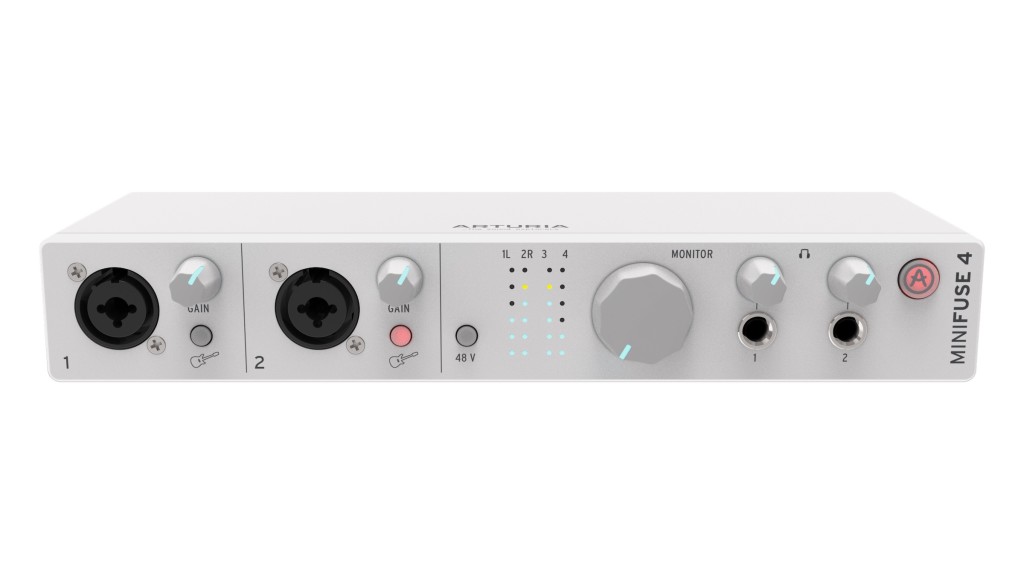
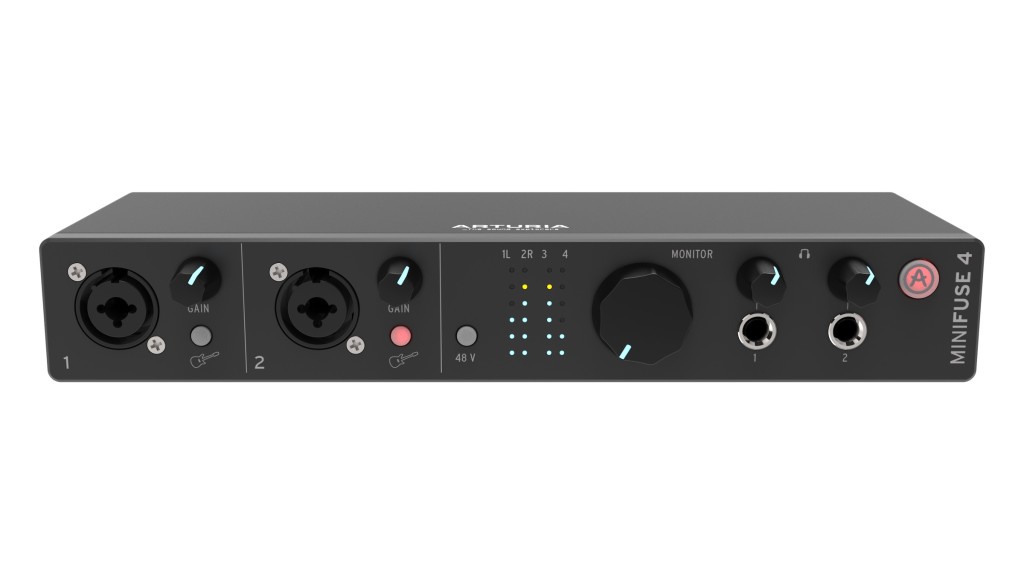
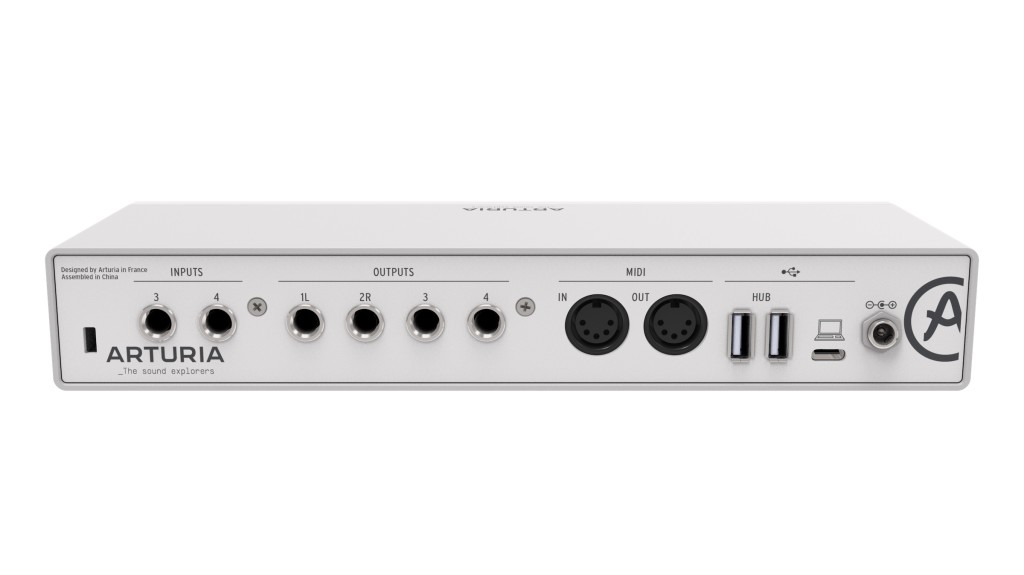
And that’s all for now. Shout if you have questions about any of these pieces.
Full stream up now: